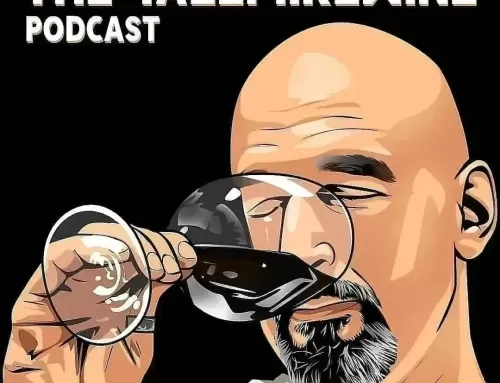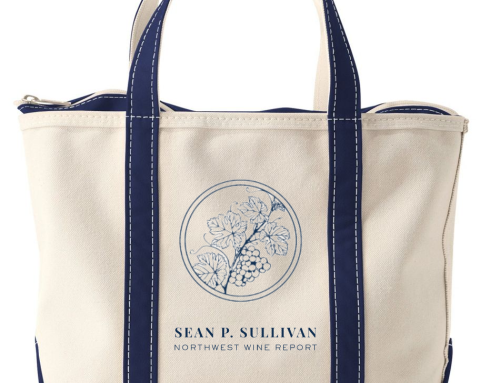Before turning to my own position on Initiative 1183, it’s worth talking about how this initiative relates to public safety. There has been a lot of discussion and advertising dollars spent on this.
Opponents say that Initiative 1183 will lead to increased incidence of alcohol related public health issues – driving incidents, domestic violence, alcoholism, etc. Proponents of Initiative 1183 say that there is no evidence – specifically from U.S. studies relating to privatization of spirits – linking privatization of alcohol to increased alcohol issues. Here’s my take.
First off, there simply can’t be increased availability, lower prices, and increased revenues without there being increased consumption. The numbers just don’t add up.
Initiative 1183 offers increased availability – more than four times the number of currently existing liquor stores – and lower prices due to volume discounting and privatization. The logical presumption then is that the increased revenues come from increased consumption. And it is logical to assume that there will be increased consumption.
Listeners to KUOW’s Weekday show today will note that Yes on 1183 representative Kathryn Stenger sidestepped the question of whether there would be increased consumption by noting that there is no evidence linking privatization to increased public health issues. She was careful not to say that there would not be increased consumption (Note: See my comment below for a correction on this).
The question then is whether there is evidence that increased consumption leads to additional safety issues. Here is the research I have seen thus far that some have cited.
The Province of Alberta privatized liquor in 1993/1994. According to a report, liquor consumption increased in the subsequent years. This study also reports an increase in alcohol related issues. Proponents of Initiative 1183 state that this study was not U.S.-based. For this and other reasons, they say the findings therefore do not translate to what might occur in Washington.
Closer to home, British Columbia partially privatized alcohol sales in 2002. B.C. also saw an increase in alcohol consumption and an increase in alcohol related issues. Some questioned their findings and state that this still does not show that liquor privatization causes increased alcohol problems. Again, proponents of Initiative 1183 again state that there are no U.S. based studies indicating that privatization leads to increased alcohol related issues.
In an oft-cited finding earlier this year, the Center for Disease Control Task Force on Community Preventive Services recommends against privatization of alcohol finding that it leads to increased alcohol consumption. The Task Force cites data from 21 studies. However, the supporting data for the finding is not presented, and the authors note that the data are preliminary and have yet to go through a peer review process. Opponents dispute these findings, noting that several of the studies look at wine consumption and not specifically at spirits and that many of the studies cited are old.
Suffice to say proponents of Initiative 1183 most likely would not be satisfied with any research finding unless it was an exact match for privatization of spirits in the state of Washington.
Looking at the research findings, let’s be clear. It just makes sense that if we have four times as many liquor stores that we will have increased consumption. Right? It also makes sense that if we have increased consumption, it will lead to increased alcohol associated issues. Right?
However, it also makes sense that if we have one quarter the number of liquor stores we will have decreased consumption. Does that mean that we should do it?
No. Since the end of Prohibition we have decided that alcohol sales and consumption should be legal and that the states should regulate it. The question then is whether we regulate it both by enforcing laws to combat excess alcohol consumption and by only having spirits sold by the government. That is, the state monopoly over spirits distribution and sales is a critical form of enforcement. This is what the ‘No on 1183’ people are arguing.
To me, it makes sense that we should combat excess alcohol consumption with enforcement. It doesn’t make sense to me that we should insist that the state monopolize spirits sales and distribution because they are the only ones who can save us from ourselves.
Personally, I don’t believe the scare tactics that have been employed by the ‘No on Initiative 1183’ campaign. I don’t believe that there will be a liquor Armageddon if Initiative 1183 passes – Pottersville if you will. I believe that safety issues are being used by large corporations to drive a particular agenda that promotes their interests.
However, I do believe that there will be increased alcohol consumption, and it just makes sense that there will be some increase in alcohol-associated issues. This is the price we will pay as a society.
It is worth noting that Initiative 1183 does increase requirements for training and supervision of employees selling spirits at retail stores. Additionally it makes penalties for selling liquor to minors stronger than they are today.
However, Initiative 1183 does not add any additional Liquor Control Board enforcement agents. In short, four times as many stores, some tighter controls, but less ability to enforce any individual store due to the same number of workers. This was a serious oversight on the part of the initiative writers because it gives a large gap for opponents, although I have not seen many of them exploit it.
That’s my take.
Next up on this, as promised, my own position on Initiative 1183.







Something that many, many "no" proponents forget or never learned in school is that correlation does NOT equal causation.
Too, as many people I have talked to about this proposition personally, not a single one of them said that they'll drink more or consume more because of the ability to buy it at Costco or Safeway. Convenience, price and the added benefit of privatizing the sale of said alcohol. These are the main generators of support among the friends and family that I discuss this with.
Anon, as William James once wrote, "As in the night all cats are gray, so in the darkness of metaphysical criticism all causes are obscure."
I have a hard time believing alcohol consumption will increase. One thing I don't see mentioned in this debate is that if 1183 passes, the stores that will begin to sell spirits are *already* selling alcohol (beer & wine) today. So unless the customers going into those stores are going to pony up more money for their alcohol budget, they are most likely going to spread their purchasing between spirits and beer, wine as they do today. But I doubt people will begin to drink more.
I can possibly see an increase in total overall alcohol consumption because you might get people in areas where an WSLCB store is not a convienient location to their home, but now if its being sold at the local Safeway they might purchase.
Sean, it seems that William James must have had too much to drink.
I'm with Dave on this. I don't see people that already have a nearby WSLCB store in their general area consuming more alcohol just because it is at their local Safeway. People, for the most part, are creatures of habit. They will have their one or two glasses of wine at night, or they will enjoy a cocktail each night or binge drink on Saturday evenings. But I don't see this changing per capita consumption by anything but a negligible amount. (I was the anon poster up top, by the way…forgot to input info!)
Larry and Dave, I don't think that there will be a run on spirits by any means if Initiative 1183 passes. But it does make sense that if it is more available – in four times as many locations with substantially longer hours and at reduced prices – that people, as a whole, will pick it up more often than they currently do. It will no longer require a 'special trip.' Research on the effects of privatization seems to bear that out.
I don't have a problem with this personally. I don't think it will lead to a calamitous increase in alcohol consumption, but it seems likely that it will lead to some increase. And though I haven't drilled into the numbers, I don't see how consumers can have lower costs and the state gets higher revenue without some additional consumption. Perhaps I'm missing something.
Dave, I agree that people may well end up buying less wine at grocery stores because spirits are available. Haven't seen any research on this but it makes sense to me.
Potterville! Love that analogy!
Bob, I was pretty pleased with it myself! :) I really wanted to embed a video of the sequence where Jimmy Stewart is stumbling down the street but couldn't get it done. Would have been a great video clip for the campaign ads!
Sean, I love your blog and your knowledge of the wine biz, but I listened to the KUOW show yesterday and you're mischaracterizing a bit what the spokesperson for the Yes side said. She didn't sidestep, in fact she made it clear that there isn't a correlation in the research between privatization and consumption.
I'll keep coming back for the good info, but I think it's important to note what she actually did say.
Jane, thank you for bringing this to my attention. I was listening in to the show on the phone waiting to get punched in to talk. What I heard was:
Scher: To be clear, more outlets does not mean more consumption of liquor.
Stegner: Data does not bear that out.
What Stegner actually said was, "Correct. Data does not bear that out." By not hearing her say, "Correct" I thought she was, as I wrote, sidestepping the question of whether it would by answering, "Data does not bear that out," rather than saying it wouldn't be the case. Listening to this again, Stegner gave a clear and decisive answer on this.
My apologies for the error and sincere thanks Jane for the catch! I will make a note in the post above to reflect this.
Thanks, Sean!